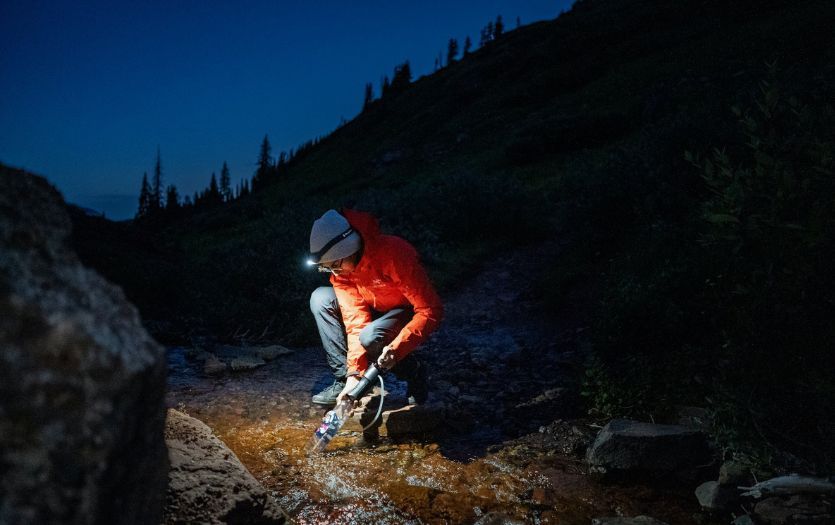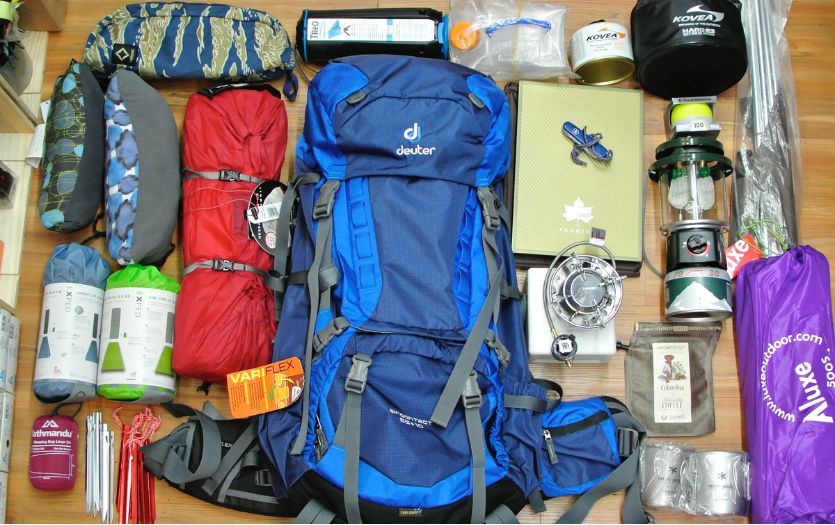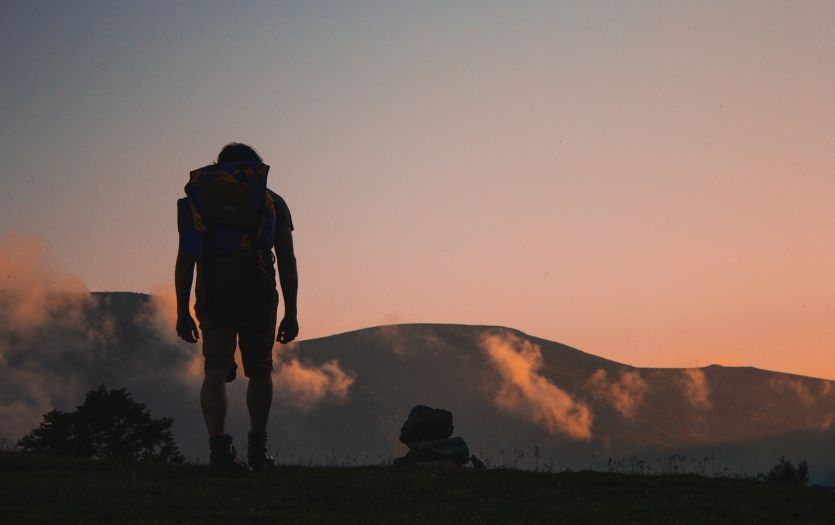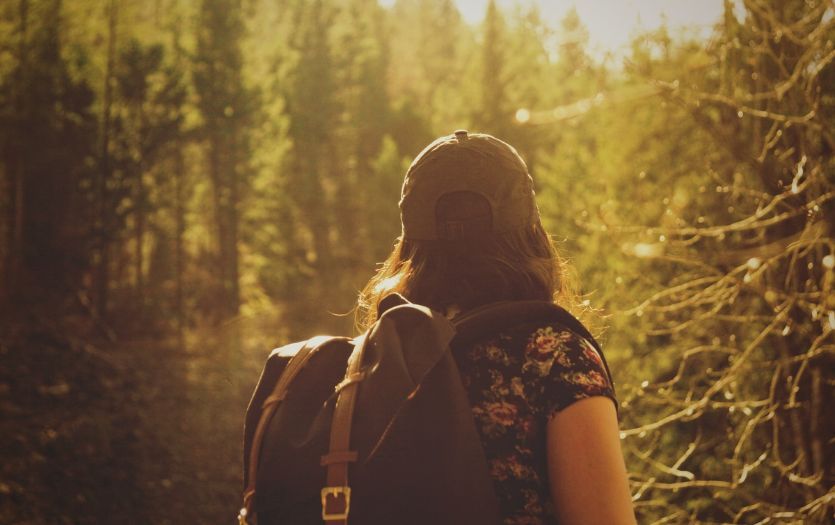Solo Camping: The Ultimate Guide to Being Alone in the Woods
Get ready to embark on a journey of self-discovery and exploration with solo camping. Learn how to plan and prepare for a safe and memorable experience with our expert tips.
Are you new to solo camping? Or are you an experienced camper seeking fresh tips to enhance your solo trips? If either of these is the case, then you're at the right place!
Solo camping can be an incredibly rewarding experience, and if you're planning to go camping alone, it's crucial to prepare yourself and be equipped with the right knowledge for a safe and enjoyable trip.
This article provides a comprehensive guide covering all the essentials such as trip planning, gear selection, camping setup, and essential skills to master. Additionally, you can learn from my past experiences as I've included a section on common mistakes to avoid.
So grab a cozy blanket, and a warm cup of tea, and get ready to dive into the world of solo camping. Let's get started!
Planning Your Solo Camping Trip

A solo camping adventure can be a daunting task, but with the right preparation and research, it can also be an incredibly rewarding experience. Here are some tips to help you plan your solo camping trip like a pro:
Choosing the Right Location
When choosing a location for your solo camping trip, it's important to consider factors such as proximity to home, level of difficulty, and your personal interests. Some popular options include national and state parks, wilderness areas, and backcountry camping sites.
Researching the Area
Once you have selected a location, it's important to research the area to gather important information such as weather conditions, wildlife in the area, and any necessary permits or regulations before your first solo outing. You can usually find this information on the park or campground website or by calling the park directly.
Checking Weather Conditions
Checking the weather conditions before your trip is crucial to ensure that you pack the appropriate gear and clothing. Weather can change quickly in outdoors, so it's important to be prepared for any type of weather.
Choosing the Right Time of Year
The time of year you choose to go camping can greatly impact your experience. Consider factors such as peak season, weather conditions, and crowds when selecting the time of year for your trip.
Permits and Regulations
Many campsites require permits or have specific regulations that must be followed. It's important to research these requirements and obtain any necessary permits prior to your trip to avoid any issues.
Emergency Preparedness
It's important to be prepared for emergencies while camping. Make sure to bring a first-aid kit, extra food and water, a map and compass, and a means of communication such as a satellite phone or emergency beacon.
Essential Gear for Solo Camping

Whether you are tent camping or hammock, packing the right camping gear is essential for a successful solo camping trip. Prepare a solo camping checklist and the must-have items to consider when preparing for your trip will include:
Tent Selection
To ensure a comfortable camping experience, it's crucial to select a tent that suits your requirements. Look for a tent that is lightweight, say to pack, offers easy setup, and efficient ventilation. Additionally, keep in mind the camping location and your personal needs while choosing the tent's size. Remember, your tent is your temporary shelter, so choose wisely.
Sleeping Bags and Pads
A good night's sleep is essential for any camping trip, and the right sleeping bag and pad can make all the difference. Choose a sleeping bag that is appropriate for the weather conditions you'll be camping in and provides enough insulation to keep you warm at night. A sleeping pad can help provide extra cushioning and insulation from the ground.
Cooking Gear and Utensils
Cooking gear and utensils are essential for preparing meals and staying fueled during your trip. A portable stove and fuel canister are great for cooking on the go, and don't forget to bring cooking utensils like a pot, pan, and utensils. Consider bringing a cooler if you plan on bringing perishable food items.
Water Filtration Systems
Staying hydrated is crucial during any camping trip, and a reliable water filtration system is a must-have item. There are several options available, from water filtration straws to portable water filters that can be attached to a water bottle or hydration bladder.
Lighting Sources
Having a reliable source of light is essential for navigating around your campsite and staying safe in the dark. Bring a bright and reliable flashlight or headlamp, and don't forget to bring extra batteries or a portable charging device.
First-Aid Kits
Accidents happen, and it's important to be prepared. A well-stocked first-aid kit can help you treat minor injuries and prevent them from becoming more serious. Make sure to include items like bandages, antiseptic wipes, and pain relievers.
Navigation Equipment
Navigation equipment like a map and compass, along with a GPS device or smartphone app, can help you navigate your surroundings and stay on track during your trip. Make sure to familiarize yourself with the area and bring the necessary equipment to ensure a safe and successful trip.
Basic Survival Skills You Need to Master

Going solo camping can be a great way to get away from it all and enjoy the outdoors. But before you set off, there are some important skills you need to master in order to stay safe and have a successful trip. Here are 8 essential camping skills every solo camper should know:
Basic Fire Starting
Being able to start a fire is one of the most important skills for any camper, especially when going solo. Knowing how to build a fire safely and efficiently will help keep you warm and provide light at night. It’s also an essential part of cooking food and boiling water for drinking. Make sure you practice building fires before heading out so that you’re comfortable with the process.
Navigation Techniques
Navigation is key when it comes to solo camping trips. You need to be able to find your way back if you get lost or if the weather changes suddenly. Learn how to use a compass and map, as well as GPS technology, so that you can always find your way back home safely.
Knot Tying
Knot tying is an essential skill for any camper, but especially for those who are going solo. Knowing how to tie different knots will come in handy when setting up camp or hanging food away from animals. Practice different knots before heading out so that you’re comfortable with them in case of an emergency situation.
Food Preparation and Cooking
When going solo camping, it’s important that you know how to prepare and cook food safely without relying on others for help. Learn basic recipes that don’t require too many ingredients or complicated cooking techniques so that you can easily make meals while out in the wilderness.
Also, make sure you understand proper food storage techniques such as hanging food away from animals or keeping it cool in bear-proof containers.
Water Filtration and Purification
Having access to clean drinking water is essential when camping alone, so make sure you know how to filter and purify water from natural sources such as streams or lakes before heading out on your trip. Investing in a good quality water filter or purifier will help ensure that your drinking water is safe and free from bacteria or other contaminants.
Emergency Signaling
Knowing how to signal for help in an emergency situation is another important skill for any solo camper. Make sure you bring along a whistle or other signaling device just in case something goes wrong while out in the wilderness and learn what type of signals are used by search-and-rescue teams so that they can find you quickly if needed.
Shelter Building
Building a shelter is another important skill for anyone venturing into the outdoors alone, especially during bad weather conditions like heavy rain or snowfall where hypothermia could become a risk factor if not prepared properly beforehand.
Make sure you understand basic shelter-building techniques such as using tarps or branches as well as knowing which materials work best under certain conditions so that your shelter can protect against wind, rain, snow, etc., no matter what Mother Nature throws at it!
Waste Management
When camping alone it’s even more important than ever before to practice Leave No Trace principles such as proper waste management. This means packing out all trash including food scraps, burying human waste at least 6 inches deep, disposing of greywater (dishwater) properly, avoiding areas with sensitive vegetation, etc., so that our wild places remain beautiful for future generations.
Mental and Emotional Preparation for Solo Camping
Solo camping can be a great way to relax and recharge, but it also comes with its own set of challenges. To make sure you have the best experience possible, it’s important to prepare yourself mentally and emotionally before embarking on your solo camping trip. Here are some tips for facing the challenges of solo camping and embracing solitude.
Facing the Challenges of Solo Camping
When you go camping alone, you are solely responsible for your safety and well-being. This means that you need to be extra prepared in case of an emergency. Make sure you know the area well, bring a first aid kit, tell someone where you’re going, and have a plan in place in case something goes wrong. It’s also important to stay aware of your surroundings at all times so that you can avoid any potential dangers.
Dealing with Loneliness
When camping solo, it can be hard to deal with feelings of loneliness. To help counter this, try engaging in activities like reading, writing, or exploring nature to distract your mind. Although the first solo trip may be tough, as you become more accustomed to it, you may discover a profound sense of peace in nature.
You can also bring along a pet or even just a stuffed animal if it helps! Additionally, don’t be afraid to reach out to friends or family while you’re away—a quick call or text can help alleviate any feelings of loneliness.
Developing a Daily Routine
Having a daily routine while camping alone can help keep you organized and motivated during your trip. Start by setting goals for each day such as exploring new trails or trying out different recipes for dinner. Having something to look forward to will make your time more enjoyable and productive!
Additionally, make sure to take time each day for self-care such as yoga or meditation—these activities will help keep your mind clear and focused throughout your trip.
Embracing the Solitude
It can be difficult at first to embrace being alone in nature but once you do it can be incredibly rewarding! Take time each day to appreciate the beauty around you—listen to birds singing in the morning or watch the stars come out at night. These moments will remind you why solo camping is so special and give you an opportunity to reflect on life without distractions from technology or other people around you.
Solo Hiking and Exploring

Exploring the outdoors on your own is a great way to get away from it all, but it can also be dangerous if you don't take the proper precautions. Solo hiking and exploring can be an incredibly rewarding experience, but it's important to plan ahead and stay safe. Here are some tips for solo hikers and explorers.
Trail Maps and Planning
Before you set out on your solo adventure, make sure you have a good understanding of the area you're going to explore. Get a detailed trail map that shows elevation changes, water sources, campsites, and other points of interest. Make sure you know where you're going before you leave so that you don't get lost or stranded in unfamiliar territory.
It's also important to let someone know where you're going and when they should expect to hear from you again. This will give them peace of mind that you're safe, as well as provide them with information if something were to happen while on your trip.
Packing for a Day Hike
When packing for a day hike, make sure to bring plenty of water and snacks with you. You'll also want to bring a first aid kit in case of any minor injuries or illnesses while out in the wilderness. Additionally, make sure to wear appropriate clothing for the weather conditions - layers are key! Lastly, always bring along some form of communication devices such as a cell phone or two-way radio in case of an emergency.
Safety Tips
When hiking alone, safety should always be your top priority! Make sure to stay aware of your surroundings at all times - this means keeping an eye out for wildlife as well as potential hazards like slippery rocks or fallen trees.
It's also important to stay on marked trails whenever possible - this will help ensure that you don't get lost or wander into dangerous areas without knowing it. Additionally, never hike alone at night - wait until morning when there is more light available and visibility is better.
If you love hiking and exploring, check out this beautiful video:
Final Thoughts
Solo camping is a great way to get away from the hustle and bustle of everyday life. It's an opportunity to relax, reflect, and enjoy nature in its purest form.
Planning for the first solo camping trip can be a bit intimidating at first, but with the right preparation and knowledge, it can be an incredibly rewarding experience.
So get out there, explore, and have an amazing time on your next solo camping adventure!


